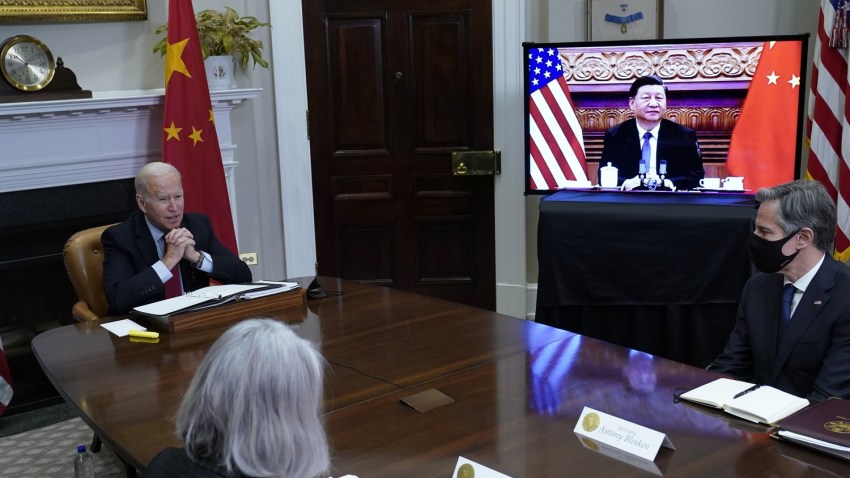Given the state of U.S.-China relations these days, most observers had low expectations for Thursday’s video call between President Joe Biden and his Chinese counterpart, Xi Jinping. After all, the list of issues causing tensions is long, and the areas for cooperation have narrowed. Unsurprisingly, then, judging from both sides’ readouts, the call between the two leaders resembled a conversation from the terminal stage of a bad romance: Both men reiterated their long-held grievances; neither made any moves to compromise; then they agreed to disagree, made tentative plans to see each other sometime in the near future and hung up.
The list of tensions between the two sides is topped most urgently by the controversy over the planned, then canceled and now reportedly rescheduled visit by House Speaker Nancy Pelosi to Taiwan. The visit, which Xi warned Biden against Thursday, would follow a series of moves by Washington over recent years to strengthen its partnership with Taiwan. Those come in response to Beijing’s increasingly aggressive rhetoric and military posture toward the island, and amid heightened fears in the aftermath of the war in Ukraine that China may seek to seize Taiwan by force.
But there are also lingering tensions over legacy trade tariffs slapped on Chinese goods by the Trump administration, which Biden has yet to lift, and the broader and deeper disputes over China’s unfair trade practices that those Trump-era tariffs were ostensibly meant to address. More broadly, a hawkish consensus has emerged in Washington that sees China as seeking not only to replace the U.S. as the dominant global power, but also to replace the U.S.-led international order with one more amenable to China’s interests—and its illiberal model of governance. Meanwhile, in Beijing, the U.S. rhetoric of liberalism, as well as its efforts to build coalitions of like-minded states in defense of it, is seen as a thinly veiled effort to contain China’s natural expansion as a global power.

